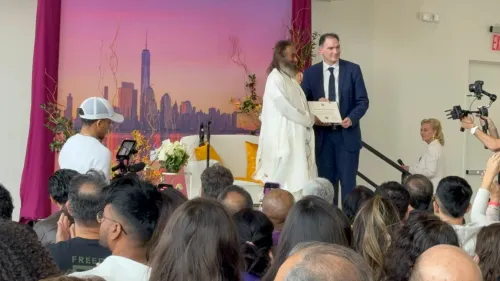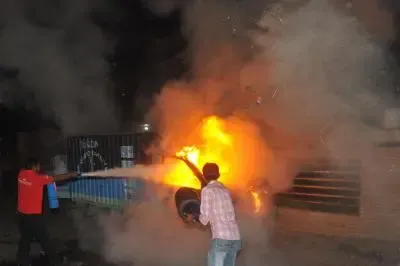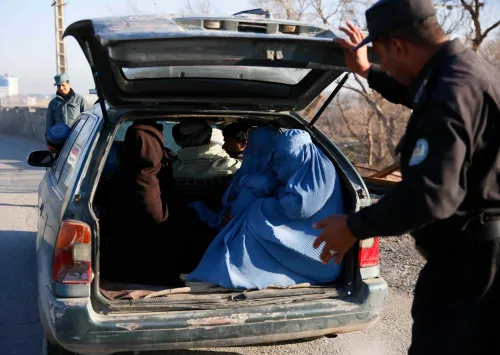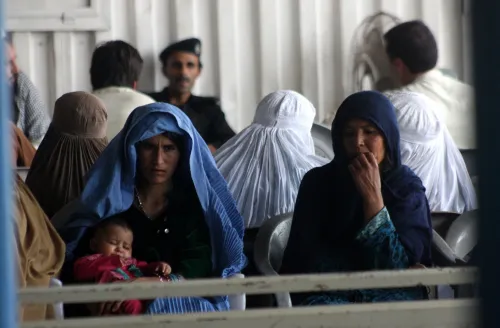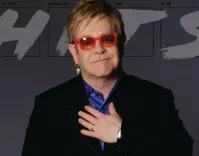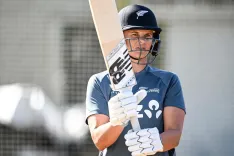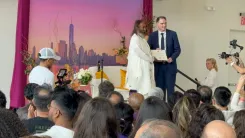South Korea: The Aftermath of Martial Law Chaos and the Future of President Yoon Suk Yeol
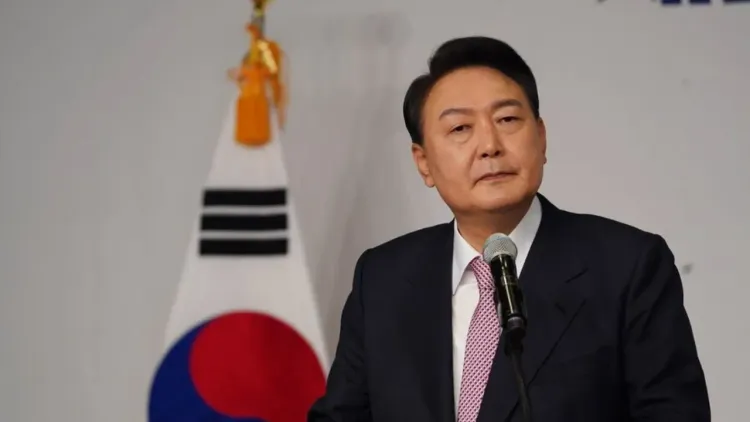
Seoul, Dec 5 (NationPress) Just six hours after shocking the nation with a declaration of emergency martial law, South Korean President Yoon Suk Yeol reversed his decision and is encountering calls for his resignation.
Experts suggest that Yoon's actions have breached the constitution, leading to a state of chaos and uncertainty within the political arena.
In a televised emergency announcement on Tuesday night, Yoon proclaimed martial law, pledging to eliminate 'anti-state forces' and maintain a free constitutional order.
This marked the first declaration of martial law since the end of military dictatorship in the late 1980s.
Yoon criticized the parliament for impeding state affairs by attempting to impeach government officials, launch a special prosecutor's investigation into first lady scandals, and shield the opposition leader from legal repercussions.
South Korea has been embroiled in a bitter political deadlock for months, especially after the liberal opposition parties gained a parliamentary majority in April. The conflict between ruling and opposition parties over next year’s budget is viewed by analysts as a trigger for Yoon's abrupt action.
Reports indicate that Yoon’s declaration of martial law lacked support from both his own party and the United States, as noted by the Xinhua news agency.
Han Dong-hoon, the leader of Yoon's conservative People Power Party, deemed the martial law decision as 'incorrect' and pledged to 'stop it with the people.'
On Wednesday, party leadership convened to contemplate possible actions, including requesting Yoon to vacate the party and the resignation of the entire cabinet.
Meanwhile, US State Department Principal Deputy Spokesperson Vedant Patel informed the media that the US was not pre-informed about Yoon's announcement. The White House expressed relief over Yoon's withdrawal of the martial law declaration.
Experts have noted that Yoon's lack of prior communication with the United States raises concerns about the level of support he can anticipate from them.
Yoon has faced longstanding critiques regarding his 'lack of communication' governance style. “The president not only avoids meeting with the opposition leader but also shies away from the ruling party leader. He even missed the National Assembly opening ceremony to evade criticism,” stated Lee Geon-tae, a lawmaker from the main opposition Democratic Party.
In light of escalating tensions between the ruling and opposition parties, analysts assert that Yoon's political gamble without sufficient internal or external backing has led to a predictable failure.
The South Korean constitution stipulates that martial law can only be declared in instances of war, unrest, or similar national emergencies necessitating military intervention for maintaining social order. Legal experts argue that Yoon's action did not fulfill these stipulations and is, therefore, unconstitutional.
Noh Hee Beom, a lawyer and former research judge at the Constitutional Research Institute, stated that Yoon's imposition of martial law contravenes Article 77 of the South Korean Constitution and the Martial Law Act. He asserted that Yoon's attempt to resolve a political impasse overstepped his constitutional authority and could lead to impeachment.
On Thursday, six opposition parties, including the Democratic Party, submitted an impeachment motion against Yoon to the 300-member National Assembly, with a vote scheduled for Saturday.
According to the constitution, the impeachment motion requires the approval of at least two-thirds of the National Assembly members, equivalent to 200 votes in favor.
Local media estimates suggest that 192 votes from opposition and independent lawmakers are already secured, needing just eight more votes from the ruling party for the motion to pass. If successful, Yoon would face a trial by the Constitutional Court, potentially following the precedent set by former President Park Geun-hye.
The martial law crisis has incited widespread public outrage in South Korea, with civic and labor groups organizing protest rallies demanding Yoon's resignation.
Reports from local media indicate that Yoon's failed political gamble has placed him in a vulnerable position, and significant changes to his political future may be on the horizon.


